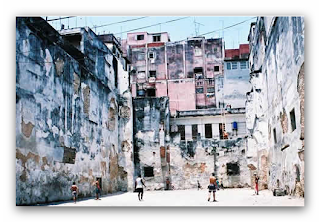US concern, or even interest, about communist activities has fallen to an all-time low with the current administration; presumably, this is because communism is an essential element of the president’s preferred brand of totalitarian government, progressivism. Just 90 miles from our shores lies a perfect example of what the O-bumites would love to do to America. The Castro brothers control, even micro-manage, virtually every aspect of Cubans’ lives.
Schools indoctrinate children in the benefits of communism and preach the glories of the revolution. Overwhelmingly, government collectives run agriculture. The small amount of private transportation that exists is comprised mainly of circa 1950 American relics held together with baling wire and prayers. Health care is free but Spartan. The media are state run, and Internet access is generally unavailable and censored. Agents of the state arrest, beat, starve, and imprison political dissidents.
After losing a $1 million a day subsidy when the Soviet Union collapsed, Cuba allowed a small amount of state sponsored capitalism to flourish to help combat malnutrition that was spreading through the population. Elections are one-party events; essentially, Cubans are slaves who cannot immigrate to find better lives. It is cruelly inconsistent that the first African American US president is coldly unconcerned with freeing these slaves.
We could help bring freedom there at a minimum cost. James Glanz and John Markoff write in The New York Times that the Obama administration is leading a global effort to deploy “shadow” Internet and mobile phone systems that dissidents can use to undermine repressive governments that seek to silence them by censoring or shutting down telecommunications networks, so far, not in Cuba.
Entrepreneurs in Washington, DC, have created what can best be described as an Internet in a suitcase. One group’s suitcase project will rely on a version of 'mesh network' technology, which can transform devices like cellphones or personal computers to create an invisible wireless web without a centralized hub. In other words, a voice, picture or e-mail message could hop directly between the modified wireless devices — each one acting as a mini cell 'tower' and phone — and bypass the official network.
In 2011, the State Department plans to spend about $70 million to finance and develop circumvention and similar related technologies, arguing that it has long been American policy to support and advance free speech and human rights. To further this cause, the US is installing a shadow cell phone network, code named Palisades, at protected US bases in Afghanistan. The Taliban had been shutting down domestic cell phone towers from 6PM until 6AM to operate under a communication blackout. This expeditionary cellular communication service is being carried out in collaboration with the Afghan government in order to ‘restore 24/7 cellular access.’
Similar efforts are ongoing in Egypt, Syria, Libya, Iran and North Korea. Admittedly, there are potential problems for those freedom fighters who have to dodge government agents to engage in these activities. They are likely to be punished severely when caught. However, people whose desire for freedom is so great that they will lash together a few inner tubes and try to paddle 90 miles to Key West are unlikely to be deterred by an oppressive state.
Sadly, for Cubans yearning for freedom, Obama is willing to spend millions to bring freedom to the Middle East, but he is uninterested in freeing millions of Cuban slaves. Go figure.
May your gods be with you.


No comments:
Post a Comment
Rational civil discourse is encouraged. No vulgarity or ad hominem attacks will be posted.